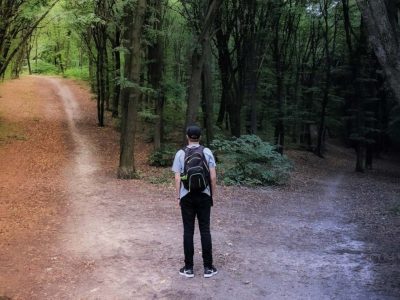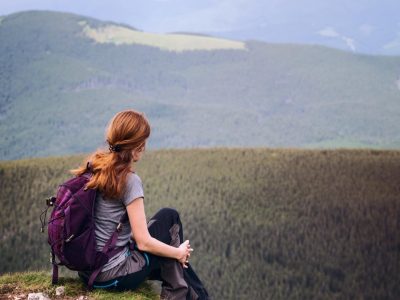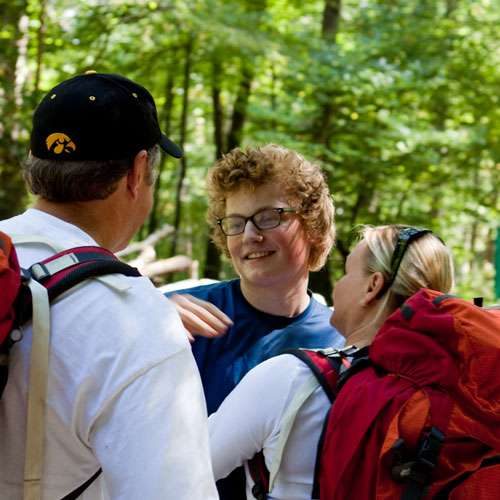 Using nature as a source for healing has been in practice since before recorded history–but now we have actual researched, scientific evidence to support it. Recently, a Japanese practice from the 1980s that utilizes nature has caught popularity in not just Japan, but several other countries–and as a wilderness treatment program, we like to stay up to date and aware of any new methods that could help struggling teens deal with their issues.
Using nature as a source for healing has been in practice since before recorded history–but now we have actual researched, scientific evidence to support it. Recently, a Japanese practice from the 1980s that utilizes nature has caught popularity in not just Japan, but several other countries–and as a wilderness treatment program, we like to stay up to date and aware of any new methods that could help struggling teens deal with their issues.
The practice is called Shinrin-yoku, which means “forest bathing” in English. No, this practice has nothing to do with nudity, you’re fully clothed during the experience–it’s more of a metaphor for spending time in nature. It’s all about taking time to relax and be with nature in order to improve your overall health–and now there’s research to support the positive effects.
How does ‘forest bathing’ work?
Well, it’s not bathing in a forest, that’s for sure. This practice is serious and has scientific studies to back up its use. The Japanese government thought the practice to be so promising that they dedicated 8 years and 4 million dollars to research it and record the many benefits–which is one of the reasons this was brought to our attention as a wilderness treatment program. To participate in Shinrin-yoku, all you need is time and a forest. A woman who participated in a forest bathing experienced described it:
“We walked through the woods and were just able to absorb what was surrounding us: the beauty of nature, the beauty of the world, from the smallest details, the pebbles under your feet or the branches and the bark on the trees, to how the air felt and listening to the sounds around us.”
This seemingly easy process has been shown to lower stress, heart rates, blood pressure and improve the immune system–leading to overall better well-being and higher levels of happiness. Essentially, ‘forest bathing’ is just giving your brain a much needed break in a natural environment. You breathe in the clean air, hear the sounds of the forest around you, and just let yourself wander for a bit–there should be no “goal” in mind; it’s not a hike, the only goal, if any, should be to relax and be aware of your beautiful surroundings.
Research has shown that this simple practice’s benefits last past the tree-line. The good feelings don’t just leave once you leave the forest, it takes some time–and within that window of time, it’s easy to come back for another stroll among the trees.
A dose of nature is easy to comeby
As a wilderness treatment program, we obviously understand the power that nature holds in the healing process for teens struggling with behavioral, emotional, or mental issues. We encourage others to seek out nature and its many benefits. Some studies have found that it only takes 10 minutes a day in nature to bring down stress and anxiety levels–only 10 minutes. Yet so many of us don’t take advantage of our backyards, national parks, or local parks nearby. Hopefully, now that you’ve heard the benefits, you’ll include a little more nature in your life.
Trails Carolina can help your family
Trails Carolina is a wilderness treatment program for struggling youth, ages 10-17. Our students commonly deal with issues such as depression, anxiety, ADHD, and other behavioral challenges. We strive to improve the lives of young people.
For more information about our wilderness treatment program at Trails Carolina, please call us at 800-975-7303.
Get started today
Contact us today to learn how Trails Carolina can help your family
Trails saved my daughter’s life. Amanda is an amazing human and a brilliant therapist. I am so grateful to her, Science Steve, and the other wonderful people who could reach my daughter at a time when I could not.
Margot Lowman August 2022
Great life changing experience for our son. After becoming addicted to gaming during covid he was very depressed. At Trails he experienced the wilderness, Science Steve, learning survival skills and top notch therapy and support etc… I highly recommend! This gave our son and our family a renewed family bond full of love and excitement about his bright future.
Winnifred Wilson July 2022
Outstanding clinical work and superb staff! There’s a great culture at this company and it shows with how they engage with families/clients.
Kristin Brace June 2022
Discover If Trails Is The Right Program For Your Child
Take our short online assessment and help us better understand how we can help your family.




